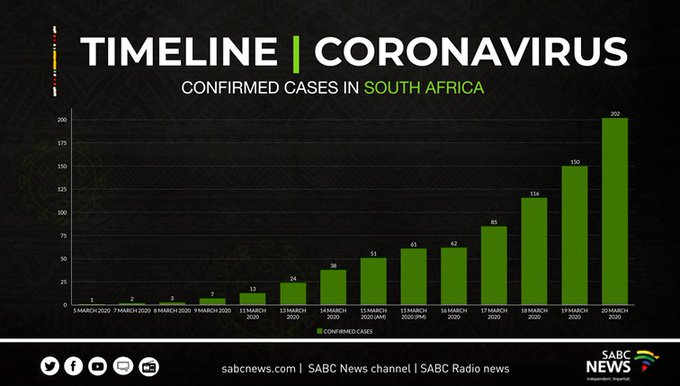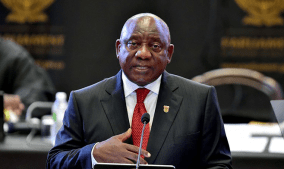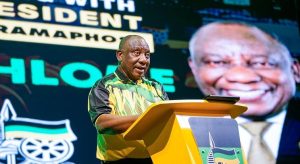For the first time since 1994, South Africa will not commemorate Human Rights Day. This comes as the Corona virus continues to spread across the country forcing government to cancel all public gatherings.
After declaring COVID-19 a state of national disaster on Sunday, President Cyril Ramaphosa announced that all gatherings of more than 100 people will be banned to control the rapid spread of the virus.
On Friday, Health Minister Dr Zweli Mkhize confirmed that the COVID-19 cases in the country have risen to 202.
Mental health practitioners have advised people to look after their mental health as the number of confirmed coronavirus cases in the country rises and panic and anxiety increase.
Kimberley-based psychologist Dr Alan Robertson says the build-up of anxiety and stress amidst concerns over the spread of the pandemic could induce depression, leaving people vulnerable to mental health illnesses.
“Panic is not good. The neuro transmitters in your brain go crazy when you panic and it can lead to a panic attack where you’re short of breath and our hearts pound and we shake and we think we’re going to die. You see other people panicking and panic shopping and that can make us very anxious. It might even have pyschosomatic effects and you think you’re getting the virus. ”

The Human Rights Day was previously known as the Sharpeville-Langa Day, as it was popularly known by the organisers of the fateful 1960 and the 1985 anti-pass marches in Sharpeville in the Vaal Triangle and Langa town-ship in Uitenhage.
The 1960 march was organised by then PAC President Robert Mangaliso Sobukwe and since 1994, the day has been annually commemorated as Human Rights Day.
However, following the recent outbreak of the coronavirus, President Cyril Ramaphosa has called off this year’s commemoration planned for Colesberg in the Western Cape in a bid to curb the spread of the virus.
SA won’t be celebrating Human Rights Day with political rallies
Gatherings of more than 100 people are prohibited and mass celebrations of national days are cancelled. Visits to all Correctional Centres are being suspended for 30 days with immediate effect. Non-essential international travel for government officials has been proscribed and non-essential domestic travel discouraged.
BILL OF RIGHTS
With the adoption of the new constitution in 1996, the Bill of Rights guarantees fundamental rights of all South Africans. This is despite many of them still being trapped in poverty and struggling to access housing, proper health care and basic services like water and sanitation.
Political Analyst Dr Ralph Mathekga says in as much as people would love to commemorate the attainment of their fundamental rights, they must understand their safety and health come first.
“Human Rights Day is very important for South Africa. We are a country born out of the struggle for humans rights – that’s who we are. Celebration of such a day is important, but the reality is that we don’t want to be celebratimg of such (and) we end up losing many people, losing their lives.”
While political parties have been urged not to organise political gatherings, the Pan Africanist Congress of Azania(PAC) has vowed to continue with its planned activity in Sharpeville on Saturday.






